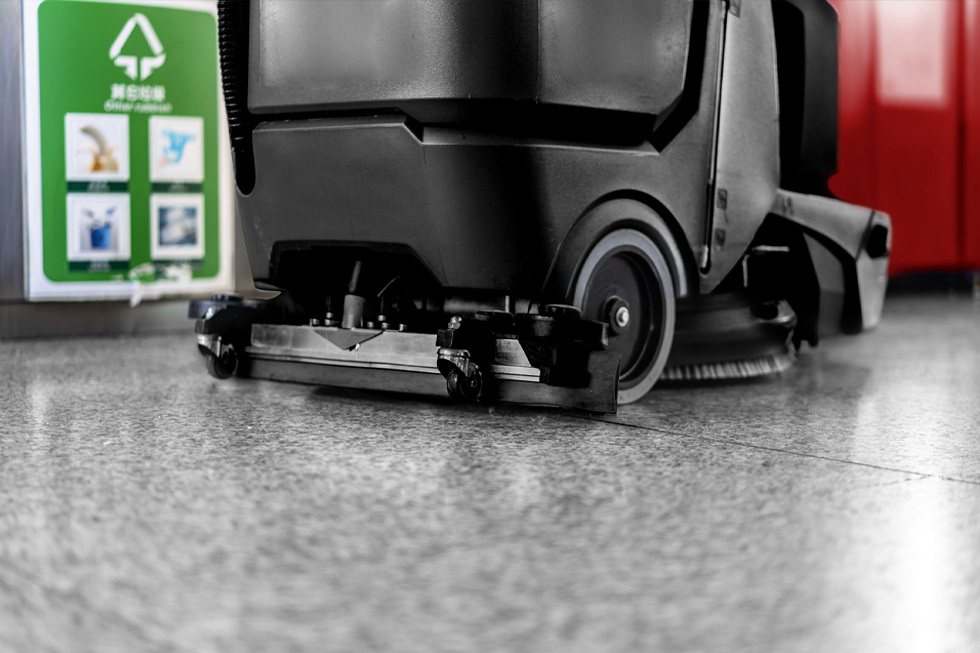Greenwashing has become a pervasive problem in today’s environmentally conscious world.
The industrial cleaning industry is no exception, with many service providers claiming to be ‘green’ but not living up to their eco-friendly promises. For companies committed to sustainability, it is crucial to distinguish between genuinely sustainable service providers and those merely engaged in greenwashing.
What Is Greenwashing?
Greenwashing is the deceptive practice of presenting a product, service, or company as environmentally friendly when it does not meet the necessary criteria to be considered truly green or sustainable. This can involve false advertising, misleading claims, or an emphasis on a single green aspect while neglecting other significant environmental issues. This deceptive practice not only misleads consumers but also damages the credibility of genuinely green businesses and hinders the progress toward a more sustainable future.
Why Greenwashing Is a Problem
Greenwashing is more than just a dishonest marketing strategy; it poses several significant problems for consumers, businesses, and the environment. Understanding these issues is crucial for companies looking to identify and avoid greenwashing. Here are some of the key reasons why greenwashing is a problem:
- Consumer Deception: Greenwashing misleads consumers who genuinely want to make eco-friendly choices. When companies falsely claim to be green, consumers and businesses may make decisions based on inaccurate information, resulting in an illusion of sustainability where there is none. This can undermine consumer trust and harm the reputation of genuinely green businesses.
- Environmental Harm: When companies engage in greenwashing, they often fail to implement genuine environmentally friendly practices. This means that resources, such as water and energy, are wasted, toxic chemicals are released into the environment, and unsustainable products are promoted. Instead of reducing their environmental impact, greenwashing companies contribute to it.
- Undermining Genuine Progress: Greenwashing obscures the true extent of environmental challenges and hinders genuine efforts to address them. When companies pretend to be green without making substantial changes to their practices, it diverts attention and resources from businesses and initiatives that are actually working toward a more sustainable future.
Identifying True Green Cleaning Industrial Service Providers
As companies aim to make responsible choices for their cleaning needs, it’s important to be vigilant about distinguishing truly green service providers from those engaged in greenwashing. Here’s a list of essential questions to ask your potential or existing cleaning service providers:
- Certifications and Credentials: Does the cleaning service provider pursue or gold any recognized standards/certifications such as EcoVadis, ISN , or ISO14001 that demonstrate their commitment to sustainability?
- Cleaning Product Transparency: What types of cleaning products do they use? Are they willing to share the ingredient list of the products they use?
- Waste Management: How do they handle waste, especially hazardous waste generated during the cleaning process? A green service provider should have a comprehensive waste management plan that minimizes environmental impact.
- Energy Efficiency: Do they use energy-efficient equipment and methods? New technologies such as orbital floor machines or engineered water, can significantly reduce carbon footprints. If companies aren’t adopting these technologies, there’s a chance they aren’t fully committed to sustainable practices.
- Water Conservation: What steps do they take to reduce water consumption? Green cleaning providers should implement water-saving techniques and use equipment that minimizes water wastage.
- Client References: Can they provide references from current clients who can vouch for their green practices? This can help verify their credibility.
- Environmental Policies: Does the company have a clear environmental policy or sustainability mission statement? A genuine green cleaning service provider will have a well-defined commitment to environmental responsibility.
- Auditing and Reporting: Are they willing to conduct regular audits and provide detailed reports on their sustainability practices? This shows a commitment to transparency and accountability.
Companies who adopted sustainable practices saw an increase in productivity by 16%.
A Harvard University study shows a green building improves employee cognitive ability by up to 34%.
Tips and Practices for Sustainable Workspaces
Beyond choosing a sustainable service provider, companies can take additional steps to make their buildings and workspaces more sustainable. Here are some practical tips:
- Energy Efficiency: Implement energy-efficient lighting, heating, and cooling systems. Use programmable thermostats and LED lighting to reduce energy consumption.
- Waste Reduction: Encourage recycling and composting in the workplace. Provide separate bins for recyclables, organic waste, and landfill trash. Reduce single-use plastic and paper products.
- Water Conservation: Install low-flow faucets and toilets to reduce water usage. Fix leaks promptly to avoid water wastage.
- Green Building Materials: Use eco-friendly building materials and finishes during renovations or construction. This includes low-VOC (Volatile Organic Compounds) paints and sustainable flooring options.
- Indoor Air Quality: Ensure good indoor air quality by maintaining HVAC systems, using air purifiers, and promoting proper ventilation.
- Green Spaces: Create green spaces within the workplace, such as indoor plants, to improve air quality and employee well-being.
The Three P’s of Green Cleaning
Embracing a thorough eco-friendly approach in your workplace goes beyond just superficial environmental improvements. In reality, prioritizing environmentally conscious facilities management can align with what are commonly known as the “three Ps”: people, planet, and profits.
Most of the previously mentioned practices readily support the first two aspects – the well-being of people and the health of the planet. The third aspect, profits, might not be immediately evident, but it’s here that green cleaning services can positively impact your financial bottom line.
TEAM’s Green Cleaning Mission
Through TEAM’s Integrated Facilities Services, your facility will see improvements, leading to enhanced efficiency and long-term financial benefits for your company. As a global leader in facilities services, we wholeheartedly accept our responsibility in nurturing the well-being of individuals and the spaces and locations we serve. Our approach is characterized by responsibility, ethics, environmental sustainability, respect, and inclusivity.
In the pursuit of true sustainability, companies must remain vigilant against the phenomenon of greenwashing, especially when selecting industrial cleaning service providers. By asking the right questions and demanding transparency, companies can ensure that their cleaning service providers genuinely adhere to green practices. Additionally, implementing the sustainable workplace practices outlined in this article can further contribute to a more eco-friendly and responsible business environment. Sustainability is a collective effort, and businesses play a pivotal role in promoting a greener future for all.
Additional Resources
https://www.team-group.com/sustainability/
https://facilityexecutive.com/how-can-i-avoid-greenwashing/
https://truthinadvertising.org/articles/companies-accused-greenwashing/
https://www.hsph.harvard.edu/c-change/news/the-impact-of-green-buildings-on-cognitive-function/
https://nbs.net/environmental-performance-boosts-employee-productivity/






